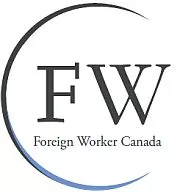Prior to the introduction of the Express Entry program, many high skilled foreign workers from the United States and Mexico came to Canada to work under the North American Free Trade Agreement, an agreement that provides for immigration between the three countries without the requirement of a labour market impact assessment under specific conditions.
With Express Entry becoming the primary method through which foreign workers can gain permanent residence, this reality has left some employers concerned about what this means for foreign workers who entered Canada through the NAFTA.
For the foreign workers employed by Canadian employers who originally immigrated through NATFA, this likely means that those workers will be required to re-apply for permanent residence through the Express Entry and meet that program's requirement. This is particularly concerning for these employers due to the Labour Market Impact Assessment (LMIA) requirement for Express Entry.
While an LMIA is not strictly required for Express Entry, the candidates in the pool who have both a Canadian job offer and a positive LMIA are prioritized for permanent residency in the new program. Earning a positive LMIA requires proof that the employer made a significant effort to hire a Canadian for the position prior to hiring a foreign workers.
This means that employers who want to continue to employ a current foreign worker with experience at their company could be required to open the position to Canadians and make an effort to hire a Canadian for the position, despite wanting to retain a foreign worker who is currently excelling in that position.
Similarly, the other international mobility programs operated through Citizenship and Immigration Canada (CIC) and Employment and Social Development Canada (ESDC) that allow for foreign workers to travel to Canada and work without an LMIA will also be affected if these foreign workers try to apply for permanent residency.
The content of this article is intended to provide a general guide to the subject matter. Specialist advice should be sought about your specific circumstances.


